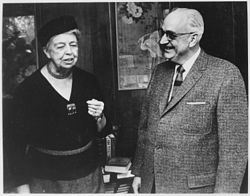Karl Menninger Quote
Listening is a magnetic and strange thing a creative force. The friends who listen to us are the ones we move toward and we want to sit in their radius. When we are listened to it creates us makes us unfold and expand.
Karl Menninger
Listening is a magnetic and strange thing a creative force. The friends who listen to us are the ones we move toward and we want to sit in their radius. When we are listened to it creates us makes us unfold and expand.
Tags:
conversation
Related Quotes
Amanda, you finally decided to answer the phone, her mom exclaimed after picking up at the first ring. Where’ve you been, what’ve you been up to?Mom, do you remember when I was a kid, I had a friend,...
Rebecca McNutt
Tags:
call, canada, cape breton, conversation, dysfunctional families, eighteen, family, friend, friendship, girl
About Karl Menninger
Karl Augustus Menninger (July 22, 1893 – July 18, 1990) was an American psychiatrist, author, and activist. He was a member of the Menninger family of psychiatrists who founded the Menninger Foundation and the Menninger Clinic in Topeka, Kansas.
He wrote many books including The Human Mind (1930), Man Against Himself (1938), Love Against Hate (1942), The Vital Balance (1963) and The Crime of Punishment (1968). During his life he advocated for a number of causes including children suffering from abuse or neglect, Native Americans, women's rights, prisoners, the elderly, the environment, wildlife, and against nuclear weapons.
Despite being one of the most famous psychiatrists during his time, he was an outsider to mainstream psychiatry, calling the DSM-II a modern “Witches Hammer Manual”
He wrote many books including The Human Mind (1930), Man Against Himself (1938), Love Against Hate (1942), The Vital Balance (1963) and The Crime of Punishment (1968). During his life he advocated for a number of causes including children suffering from abuse or neglect, Native Americans, women's rights, prisoners, the elderly, the environment, wildlife, and against nuclear weapons.
Despite being one of the most famous psychiatrists during his time, he was an outsider to mainstream psychiatry, calling the DSM-II a modern “Witches Hammer Manual”
